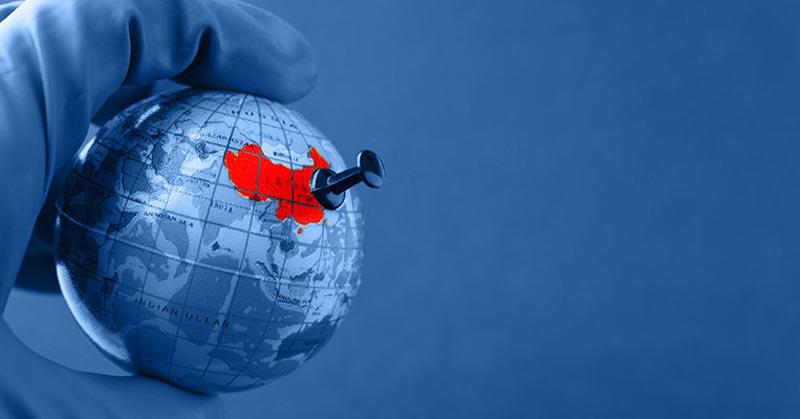
What could be worse than not finding a vaccine? Having it stolen. And right now, in the race to find a coronavirus treatment, that might be the biggest threat of all. That's why China isn't just putting its best scientists on the job -- it's unleashing an army of cyberthieves to break into U.S. files and steal whatever progress America's making. Turns out, the regime wasn't just content infecting the world -- they want to control who recovers first too.
The alerts went out across health care industries, academia, research teams, drug manufacturers: lock down your data. By late February, the U.S. cyber-intelligence and defense communities were getting more and more concerned. There'd been a huge spike in attacks on "sensitive data on COVID-19-related research" by foreign hackers at agencies like HHS. Both the American and U.K. governments sent out a bulletin warning groups that this was a full-scale assault on government agencies, hospitals, labs, and universities. "There is nothing more valuable today than biomedical research relating to vaccines or treatments for the coronavirus," Jonathan Demers, the assistant attorney general for national security, pointed out. And it would be "beyond absurd," he argued, to think that the Chinese Communist Party's espionage would stop during the pandemic.
"It is safe to say," one official agreed, "that there are only two places in the world" -- China and Russia -- "that could hit (the Department of Health and Human Services) the way it's been hit." And it's no wonder, Senator Tom Cotton (R-Ark.) pointed out. "In the middle of a pandemic, what's the most valuable intellectual property in the world? It's the research that our great laboratories and life science companies are doing on prophylactic drugs, therapeutic drugs, and ultimately a vaccine. "[China] wants to be the country that claims credit for finding those drugs or finding a vaccine and then use it as leverage against the rest of the world."
The vaccine will help millions of people, yes. But in China, what matters isn't saving lives -- it's having power to lord over the rest of the world. Whoever can inoculate first -- and reproduce it -- won't just have an economic advantage. They'll have a geopolitical one. Scott Gottlieb, the former commissioner of the FDA, wrote a sobering column in the Wall Street Journal about the consequences of coming in second -- not just for Americans but for the struggling countries who don't have the resources to develop treatments of their own. "A more prepared U.S. could inoculate Americans quickly and share the product with others."
Of course, Senator Cotton reminded listeners, China's been trying to hack into our systems for years -- trying to get a leg up on everything from military technology to agriculture. When it comes to the virus, "there's no doubt that our scientists and medical researchers are world-leading in the field -- better than China's. Obviously, China is a communist, authoritarian government. Free inquiry and scientific research never flourishes in such a society. They are hacking in part because they need to. But if they can hack into a company or a leading laboratory university that is researching drugs or vaccines, and even if they haven't developed [them], they can get a head start on [the data]... and corner the market." That should scare everyone, he explained, because if America has it, we'll share it. "I can't say the same thing about China."
On the bright side, Americans from both parties are starting to recognize what a pariah the Chinese government is. Senator Cotton believes it's time ride that wave of momentum and start playing hardball. Roll back China's economic power. Change our security infrastructure. Beef up defense. Bring back American companies. Manufacture our own drugs and products. "We ought not let them be a part of any industry that is vital for the security, prosperity, and help of the American people."
Including our food supply. While people worry about the meat shortage here at home, our pork exports to China have more than quadrupled since mid-March. That's because big-name brands like Smithfield Foods have been sold to the Chinese W.H. group. Our slaughterhouses are operating at half-capacity because of the virus, and we're shipping whatever we do have to China. It's absurd. But maybe now, on the brink of a meat crisis, Americans will finally start paying attention to these vulnerabilities. "Our food supply chain is one of our most vital national interests," Senator Cotton shook his head, "and that we haven't done enough to protect it..."
Like everything else, it all points to one thing: our need to distance -- a heck of a lot more than six feet -- from China.
Tony Perkins's Washington Update is written with the aid of FRC senior writers.

















